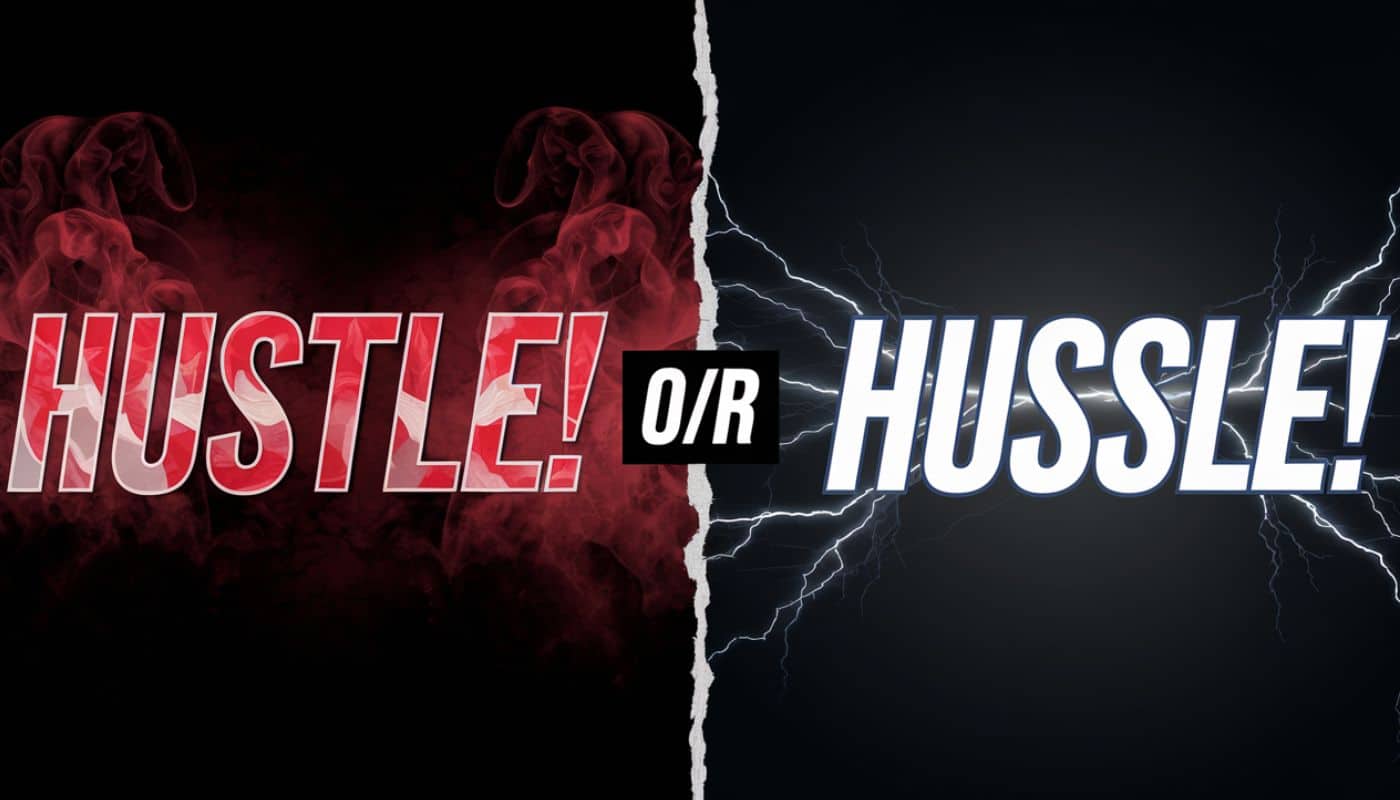Ever typed “hussle” and wondered if it’s correct? You’re not alone. The confusion between hustle and hussle is a common one, especially in informal writing and social media.
But which one is right? Let’s dive deep into the correct spelling, meanings, and why this mix-up happens. By the end of this article, you’ll not only know the answer but also understand the cultural and professional significance of getting it right.
The Correct Spelling: Hustle
The correct spelling is hustle. This word has a rich history and multiple meanings, making it a versatile term in both casual and professional settings.
- Origin: The word “hustle” comes from the Dutch word “husselen,” which means to shake or toss. Over time, it evolved in English to mean pushing or forcing an outcome through effort.
- Definition: As a verb, hustle means to work hard, move quickly, or push someone forcefully. As a noun, it refers to a state of busy activity or a scheme to make money.
Examples:
- “She hustled to finish the project before the deadline.”
- “The city streets were full of hustle and bustle.”
Why Do People Spell It “Hussle”?
The misspelling hussle is widespread, and there are a few reasons why:
- Phonetics: The pronunciation of “hustle” can easily lead to the misspelling “hussle.”
- Informal Language: Slang and casual writing often prioritize ease over accuracy.
- Pop Culture Influence: The late rapper Nipsey Hussle popularized the misspelled version, embedding it in music and social media.
The Meaning of Hustle
Hustle is a multifaceted word with applications in various contexts. Here’s a breakdown:
As a Verb
- To work hard or energetically.
- To push or force someone to do something.
Example: “He hustled to get the deal signed before the end of the quarter.”
As a Noun
- A state of busy activity.
- A scheme to make money, often through questionable means.
Example: “The hustle of the marketplace was overwhelming.”
Hustle in Different Contexts
Hustle in Business
In the business world, hustle embodies entrepreneurship, grit, and resourcefulness. It’s about networking, persistence, and adaptability.
Example: “Entrepreneurs often hustle to turn their ideas into successful businesses.”
Hustle in Sports
In sports, hustle refers to effort, energy, and commitment during a game or practice.
Example: “The player’s hustle on the court earned the team a crucial point.”
Hustle in Everyday Life
Beyond business and sports, hustle is a mindset. It’s about pushing through challenges and striving for success in all areas of life.
Example: “She hustles every day to balance work, family, and personal goals.”
Synonyms for Hustle
To avoid repetition, here are some synonyms for hustle:
- Strive
- Grind
- Push
- Work hard
- Persevere
Example: “Instead of saying ‘hustle,’ you could say, ‘She grinds every day to achieve her goals.'”
Why Spelling Matters
Using the correct spelling is crucial, especially in professional and academic settings. Misspelling hustle as hussle can undermine your credibility and attention to detail.
Key Points:
- Professionalism: Correct spelling reflects care and professionalism.
- Communication: Proper language use enhances clarity and effectiveness.
Common Misspellings in English
Hussle isn’t the only word people often misspell. Here are a few others:
| Correct Spelling | Common Misspelling |
|---|---|
| Accommodate | Acommodate |
| Definitely | Definetly |
| Separate | Seperate |
Tip: Always proofread your work or use tools like spell check to catch errors.
Key Takeaways
- Hustle is the correct spelling.
- Hussle is a common misspelling influenced by phonetics and informal usage.
- Understanding the correct spelling and meaning enhances communication and professionalism.
Conclusion: Hustle or Hussle?
The answer is clear: hustle is the correct spelling. Whether you’re hustling in business, sports, or life, remember—it’s all about the effort you put in. So, next time you’re tempted to type hussle, think twice and go with the correct spelling.

Emily Hudson, the creative mind behind “English Summa,” is a passionate English language educator with a Bachelor’s Degree in English and a Teaching Certification. Dedicated to making the intricacies of English accessible to learners, Emily brings a blend of expertise and enthusiasm to her readers. Follow English Summa for insightful language tips, literary explorations, and a shared love for the beauty of English.














